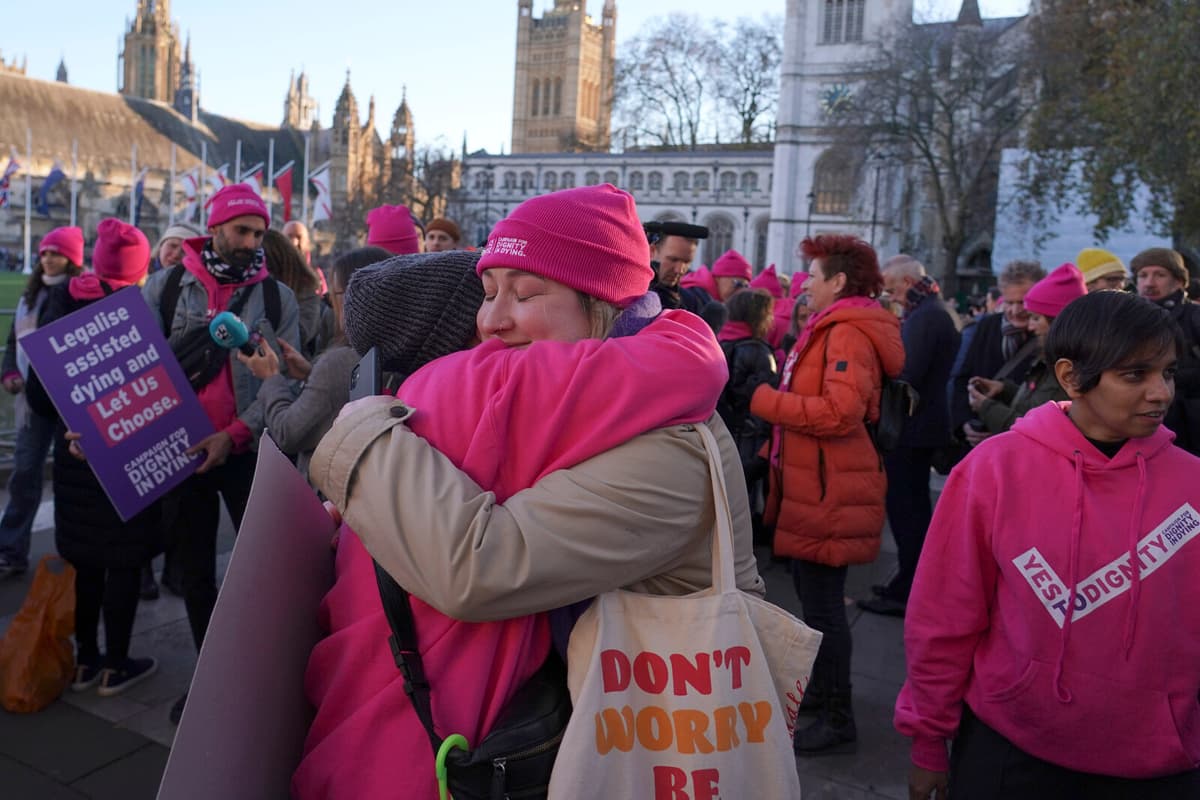Friday's decision in the House of Commons in Westminster came after nearly five hours of debate and demonstrations for both sides outside the parliament.
A yes in the current situation does not mean that the proposal has been passed. Now, investigations and further debates on the matter are pending, and a second vote is not expected to take place until spring – by then, the bill may have received new additions and other parts may have disappeared.
If it ultimately becomes a yes to active euthanasia, it cannot, according to BBC, be implemented before 2026, and as the proposal stands today, it concerns euthanasia for people who are terminally ill.
The proposal to move forward with the issue was passed with the numbers 330 to 275. All parties in parliament are divided, and on Friday, several leading representatives came out and advocated for their opinions.
Within the conservative Tories, party leader Kemi Badenoch voted no, while her predecessor Rishi Sunak voted yes. In Labour, former leader Jeremy Corbyn voted no, while Prime Minister Keir Starmer cast his vote in favour.






